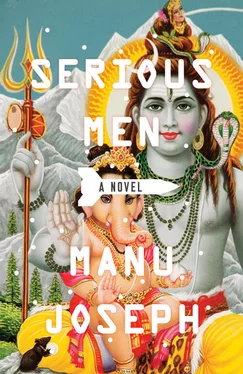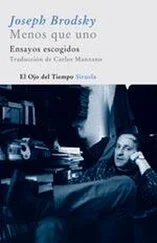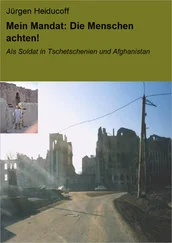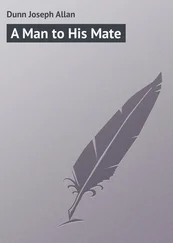The audience erupted and gave him a long round of applause. The men on the stage rose, one after the other, yielding to the force of the moment, and clapped somewhat sheepishly. In the din, Ayyan felt a strange affection for Arvind Acharya. He missed him. This was the kind of rubbish Acharya had fought against all his life. The pursuit of truth seemed less ridiculous when he was at the head of the quest. And Ayyan felt the impoverishment of serving a lesser regime.
In the days that followed, the search for extraterrestrial intelligence assumed the character of a revolution whose time had come. Scientists from other institutes landed in the euphoria of finally being granted rights over the Giant Ear. There were seminars and lectures. Journalists, who did not have to wait in the anteroom any more, came to learn about the exotic future of Seti. School teachers, who had to wait, came to ask for excursion trips to the array of giant radio telescopes.
One morning, at the height of the carnival, Ayyan was surprised to see the silent wraith of Acharya enter the anteroom with a twinkle in his small eyes and a grin that appeared to condemn the visitors on the crowded couch. Ayyan got up in his customary half-stand.
‘So your son is taking the entrance test, I hear,’ Acharya said.
Ayyan nodded without meeting his eyes. ‘I am going in,’ Acharya said.
‘They are having a meeting,’ Ayyan told him, ‘but I think you should do as you please, Sir.’
The radio astronomers felt a familiar terror, before they remembered that the apparition at the door was merely a wandering memory of a monster they had slain. They were grouped on the white sofas, around the centrepiece which was cluttered with teacups and biscuits. Acharya did not understand the room. The furniture which he had always presumed was immovable had magically shifted, and the walls had framed posters. He threw a look of affection and misgiving at the poster of Carl Sagan, and Sagan returned his gaze.
Ayyan appeared at the doorway in a farcical scramble and said, ‘I am sorry, I could not stop him.’
‘Nobody can,’ Nambodri said, rising graciously and ushering Acharya to a vacant portion of the sofa.
Acharya sank down comfortably and looked carefully at the six faces around him. He said, taking a biscuit from the tray, ‘My friends say that the letters they send me come back to them these days.’
‘That’s because the Earth is round, Arvind,’ Nambodri said.
‘The Pope said that before you.’
‘Yes, I think he did. Arvind, it just struck me, you still have friends?’
Professor Jal let out a deep impulsive laugh which stopped abruptly when he heard his mobile ring. He muttered ‘yes’ and ‘no’ into the phone before he disconnected. He looked around the room somewhat puzzled, and said, ‘Every time I get a call here, there is a disturbance on the line. It’s as if there is always a live phone somewhere nearby.’ But the others were too distracted by the presence of Acharya to consider Jal’s problem.
‘So, Arvind,’ Nambodri said, ‘What can we do for you?’
‘Can we talk alone?’
‘That won’t be possible,’ Nambodri said. ‘We were in the middle of a budget meeting. Anyway, we make all decisions together. So if you have something professional to discuss you should tell us all.’
‘Six men, one mind?’
That annoyed Nambodri, but he smiled. ‘We are a bit busy, Arvind. If you would like to, we can meet later.’
‘Six men, one mind. That reminds me of something,’ Acharya said, taking another biscuit. ‘When America decided to finish off Afghanistan, remember the Taliban council that used to hold desperate press conferences in Kabul? Remember those guys? One chap did not have a nose. Another guy did not have an ear. Their chief was one-eyed. But taken together they had one complete human face.’
‘Arvind, do you want to come later?’
‘Let’s finish it now. I suppose it really does not make any difference if these guys are around,’ Acharya said. ‘What I want to say is, I feel a bit incomplete these days. There is a sort of hollow inside me.’
‘That’s because you are dead, Arvind. It’s called retirement.’
Acharya munched the biscuit thoughtfully and said, ‘You got want you wanted, Jana. I am OK with that. But we need to figure out my immediate future.’
‘Your future?’
‘You see, I want to continue working here.’
‘And do what?’
‘I want to plan more balloon missions. And there is something more. There is no deep way of saying it, I suppose. I am sure you know Benjamin Libet.’
‘Libet? Yes, yes. Libet.’
‘I want to continue his experiments here.’
Nambodri looked at his men. The spectacles on the nose-bridge of Jal began to tremble in his soft chuckle.
‘Arvind, you want to continue searching for falling aliens and you want to find out if every single human action is predestined. Is that correct?’ Nambodri asked.
‘Exactly,’ Acharya said, pouring himself coffee from a jug.
‘What do you want from me, Arvind?’
‘A lab, some funds, some office space. That’s it.’
‘Really?’
‘Yes.’
‘Did you know, Arvind, that a man no less than Galileo Galilei once gave a lecture on the size, dimensions and even the location of hell? And more recently, a scientist called Duncan MacDougall revealed the weight of the human soul. He said it was about twenty grams.’
‘Why are you telling me all this, Jana?’
‘You’re getting there, Arvind,’ Nambodri said standing up. ‘You’re getting there, my friend. Nice of you to drop in.’
Acharya rose with his coffee cup and drank it with urgent enthusiastic sips. ‘I’ll come back later,’ he said and marched out.
Ayyan Mani was holding the phone receiver to his ear, listening. The new regime could not terminate his espionage, but it did force him to change his methods. Nambodri was a man who would notice if his phone were off the hook. So, every morning, before Nambodri came to work, Ayyan called his own mobile and hid it in the new Director’s desk, and listened from a landline. He half stood as Acharya walked past cheerfully.
On the sea rocks, Acharya stretched his legs. He followed the low flights of the seagulls as they were chased by predatory crows, the laborious journey of a distant cargo ship, the fall of a solitary leaf down the rocks. He sat this way for probably over two hours. Then he heard the voice of Ayyan Mani.
‘Would you like some coffee, Sir?’
Acharya nodded, without turning. A few minutes later, a peon walked down the winding pathway to the sea holding a cup of coffee, fruit and three unopened biscuit packets on a tray.
This soon became a common sight. Acharya would be sitting on the rocks, alone or in the company of animated students and scientists, or ambling in the lawns or lying beneath a tree with a book, and a peon would walk towards him with a tray.
On days when Ayyan found Acharya sitting by himself, he would go to him and talk. In the tone of banter between old friends who had gone through life together, Ayyan would ask how scientists knew that the universe must be so big and no more, or how they could say so confidently that a planet that was an unimaginable distance away had water, or how they could claim from a single bone of an ancient beast that it used to fly. ‘It’s like this,’ Acharya would always begin. On occasions, he defended science and insisted that it had no choice but to make very smart guesses from little information. On other occasions he would laugh with Ayyan at the absurdity of scientific claims.
‘Sir,’ Ayyan asked one late noon when Acharya was sitting beneath a tree and studying the progression of red ants. ‘How many dimensions do you think there are?’
Читать дальше












